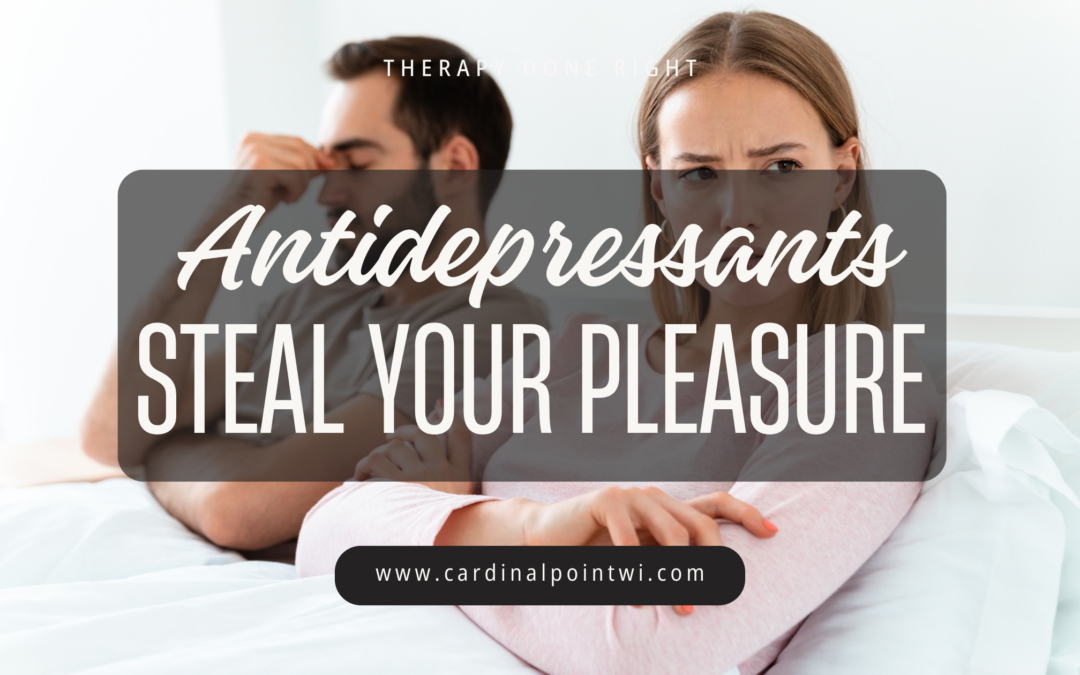Imagine you’re in your sexual prime—feeling confident, connected, and fully in tune with your body. Intimacy with your partner feels natural, spontaneous, and fulfilling. You’ve found that balance between mental well-being and physical health, and your libido is a healthy part of your life. Everything seems to be going just as it should.
But then, life throws you a curveball. You struggle with anxiety or depression, and after seeking help, your doctor prescribes you an antidepressant. At first, it’s a relief. Your mood improves, the world seems a little brighter, and the anxiety that once loomed over you starts to fade away. You’re finally feeling like yourself again—until something starts to shift in your intimate life.
Sex feels different. You notice a drop in your desire, or perhaps the physical sensations just aren’t there anymore. You can’t quite put your finger on it, but something is off. It’s harder to connect with your partner, and the pleasure that once seemed easy now feels out of reach. You start to wonder if it’s just the stress of life, or if something has changed in your body that you can’t explain.
You might be experiencing Post-SSRI Sexual Dysfunction (PSSD), a condition that’s gaining attention but is still not widely discussed. As explored in The New York Times, PSSD affects individuals long after they’ve stopped taking SSRIs, resulting in persistent sexual dysfunction. What’s even more frustrating is that many don’t realize this could be linked to their medication until the effects are undeniable.
Now, imagine the emotional toll this takes. Not only do you feel disconnected from your partner, but you also begin to question your self-worth. The loss of desire and sexual function becomes more than just a physical issue; it becomes an emotional one too. You may feel embarrassed, isolated, and frustrated as you try to navigate this new reality. What once seemed like a simple fix to your mental health struggles now feels like a complex web of issues—one that extends far beyond just the antidepressants.
And while the New York Times article touches on how these side effects are often downplayed or overlooked by medical professionals, the real challenge is the lingering effects that go unaddressed. For many, it’s not just about getting back to mental well-being; it’s about rediscovering your sexual health and connection with your partner—something that’s just as vital to a full, balanced life.
This is a journey that no one should have to go through alone. At Cardinal Point Counseling in Wisconsin, we understand the emotional and physical toll that PSSD can take. If you or someone you love is dealing with the aftermath of antidepressant-induced sexual dysfunction, we’re here to offer support. Together, we can help you rebuild intimacy, self-esteem, and overall emotional health.
If you’re struggling with PSSD and its impact on your sexual health, contact Dr. Teralyn . Schedule a session today and start your path toward healing and reconnecting with your body, your partner, and yourself. You don’t have to face this challenge alone.

